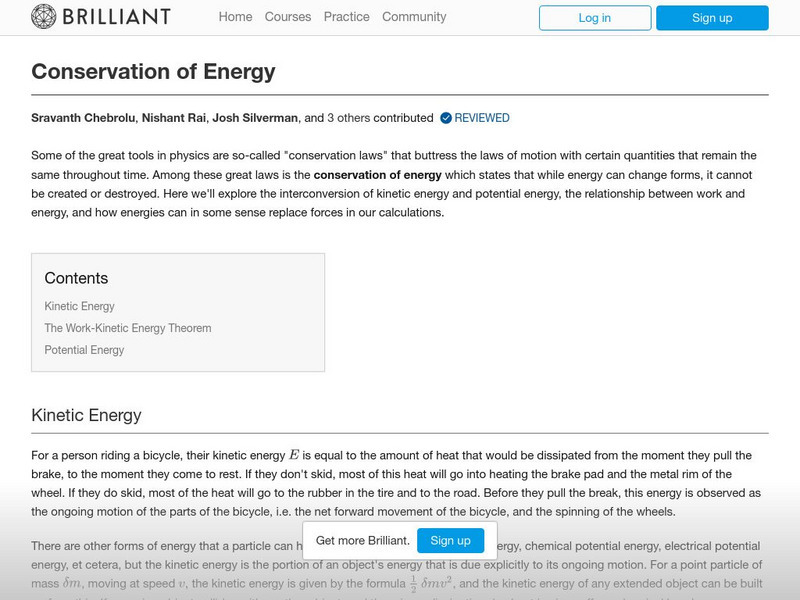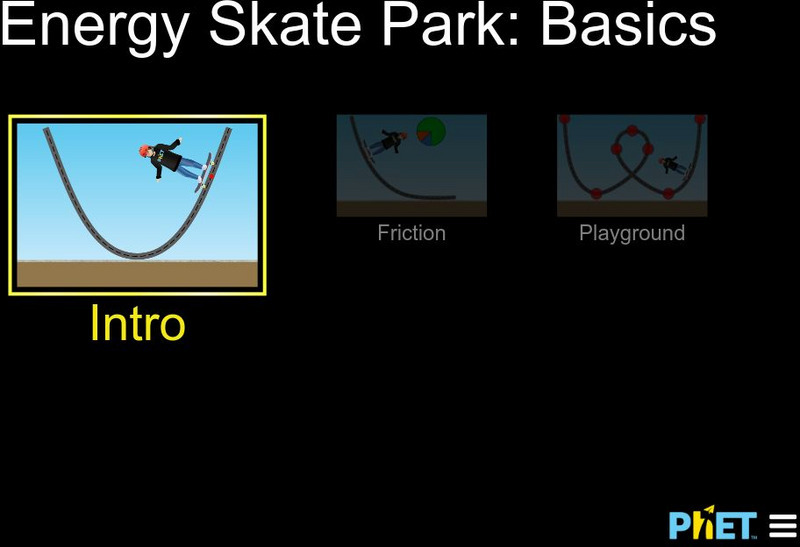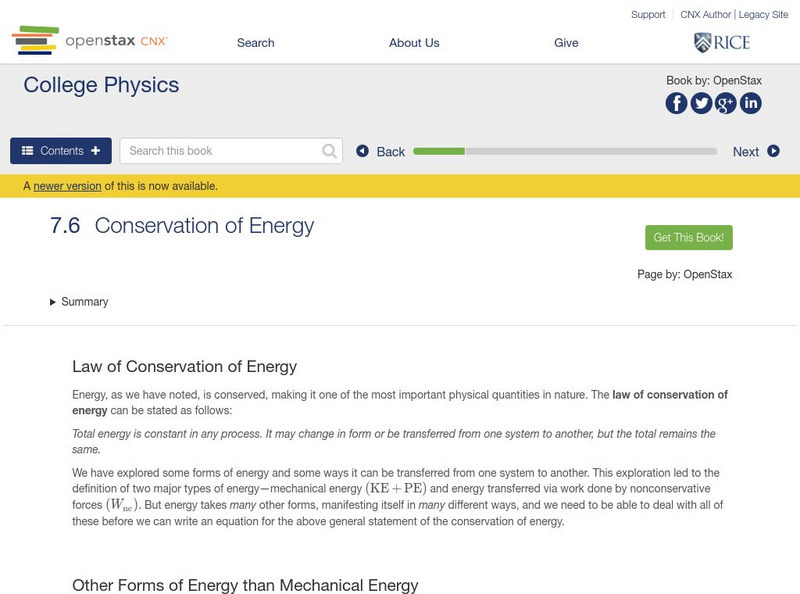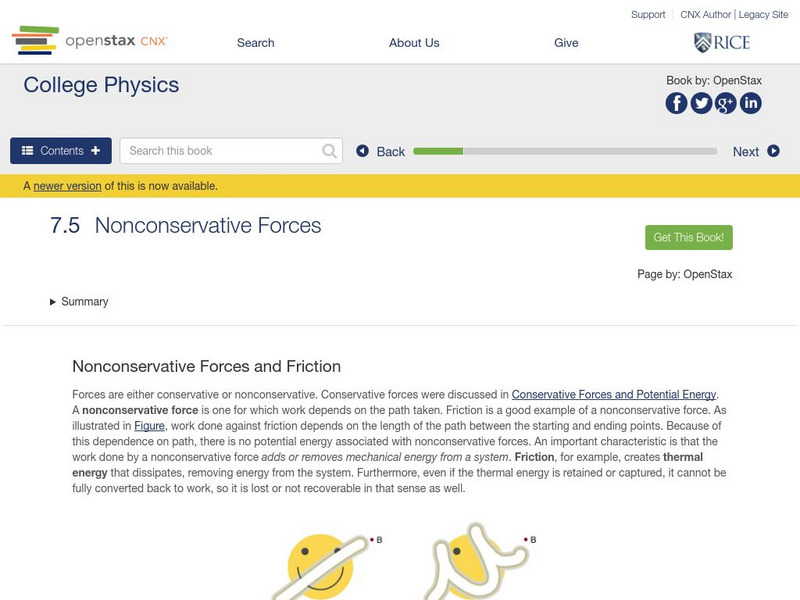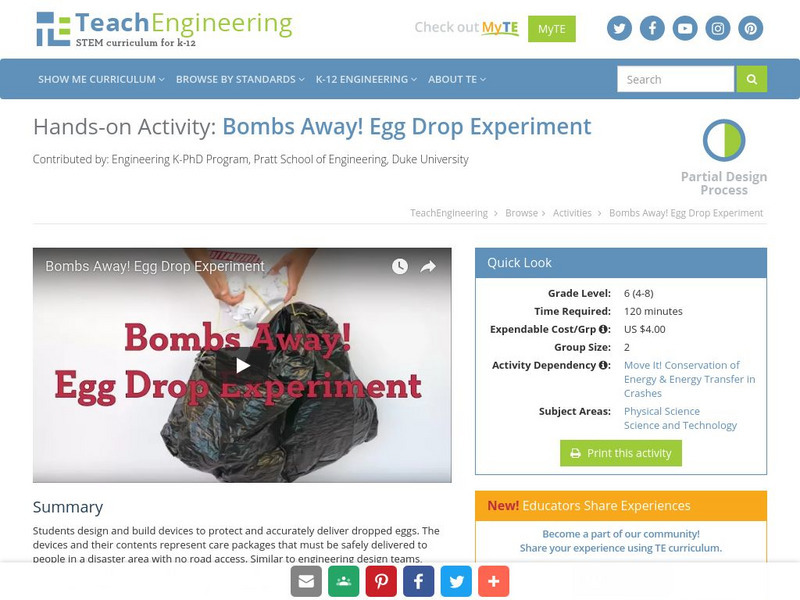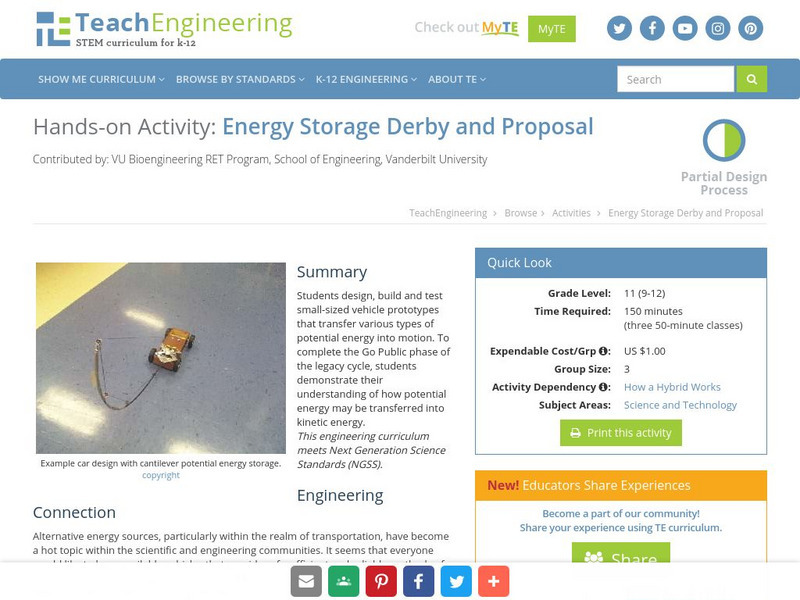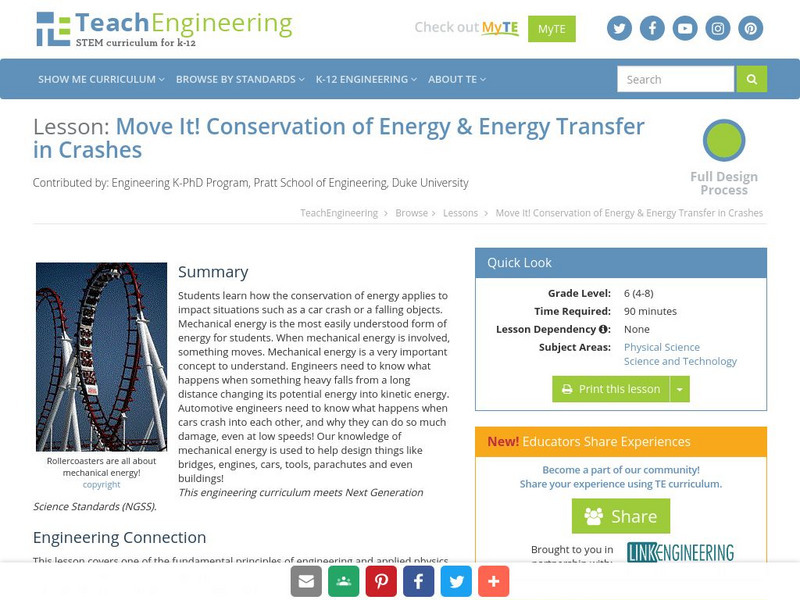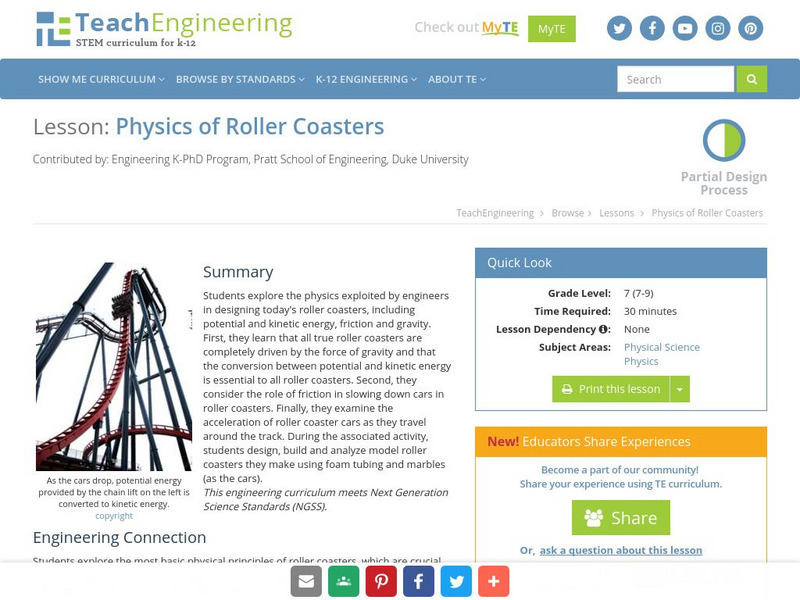University of Colorado
University of Colorado: Ph Et Interactive Simulations: Gravity and Orbits
An interactive simulation that teaches about gravitational force, circular motion, and astronomy by manipulating the sun, earth, moon, and a space station to observe the effects of gravity and orbital paths. This simulation can either be...
University of Colorado
University of Colorado: Ph Et Interactive Simulations: Energy Skate Park
An interactive skate park simulation that teaches about energy, conservation of energy, kinetic energy, potential energy, and friction. This simulation can either be downloaded or played online and includes handouts, lesson plans, and...
University of Colorado
University of Colorado: Ph Et Interactive Simulations: Energy Skate Park: Basics
An interactive skate park simulation that teaches about conservation of energy, kinetic energy, potential energy, thermal energy, and friction. This simulation can either be downloaded or played online and includes handouts, lesson...
University of Colorado
University of Colorado: Ph Et Interactive Simulations: Hooke's Law
An interactive simulation that teaches about force and potential energy by changing variables to stretch and compress springs. This simulation can either be downloaded or played online and includes handouts, lesson plans, and additional...
University of Colorado
University of Colorado: Ph Et Interactive Simulations: Gravity Force Lab
An interactive simulation that teaches about gravitational force, Newton's Third Law, and force pairs by varying properties affect the gravitational force exerted between two objects. This simulation can either be downloaded or played...
NC State University
The Engineering Place: Roller Coasters [Pdf]
A lesson where learners construct a roller coaster and test it under different conditions to learn about force and motion.
Simon Fraser University
Chem1 Virtual Textbook: Energy, Heat, and Temperature
As part of a larger resource called "Getting started in Chemistry," this page examines various topics related to energy. The types of energy discussed include kinetic, potential, thermal, and chemical.
Canada Science and Technology Museum
Canada Science and Technology Museum: Background Information for Energy
Energy! What do you know about it? Use this terrific site to find out everything about it through a series of Q&As. Educators will find useful lesson plans at the related Teacher's site.
Other
Need: Exploring Nuclear Energy [Pdf]
This downloadable article addresses all aspects of nuclear energy. Visual charts make understanding of cycles and concepts easier. Most useful for older students and educators. PDF (requires Adobe Reader).
University of Colorado
University of Colorado: Ph Et Interactive Simulations: Energy Skate Park
Build tracks, ramps and jumps in a skate park to learn about energy.
Other
Brilliant: Conservation of Energy
Discusses conservation of energy, and explains what kinetic energy is, some kinds of potential energy, and how work and energy are related using the work-kinetic energy theorem. Provides lots of examples along with calculations.
University of Colorado
University of Colorado: Ph Et Interactive Simulations: Energy Skate Park
Explore kinetic, potential, and thermal energy as you send a skateboarder along several pre-built tracks, then design your own. Charts and graphs show the distribution of the different forms of energy, illustrating how the total energy...
OpenStax
Open Stax: Potential Energy and Conservative Forces
In the following interactive students will define conservative force, potential energy, and mechanical energy. They will explain the potential energy of a spring in terms of its compression when Hooke's Law applies. Students will also...
OpenStax
Open Stax: Conservation of Energy
In the following tutorial, students will learn about the law of conservation of energy. They will read about some of the many forms of energy. They will understand the definition of efficiency of an energy conversion process as the...
OpenStax
Open Stax: Nonconservative Forces
In the following interactive students will begin to define nonconservative forces and explain how they affect mechanical energy. They will show how the principle of conservation of energy can be applied by treating the conservative...
University of Colorado
University of Colorado: Ph Et Interactive Simulations: Hooke's Law
Stretch and compress springs to explore the relationships between force, spring constant, displacement, and potential energy. Investigate what happens when two springs are connected in series and parallel.
TeachEngineering
Teach Engineering: Falling Water
Students drop water from different heights to demonstrate the conversion of water's potential energy to kinetic energy. They see how varying the height from which water is dropped affects the splash size. They follow good experiment...
TeachEngineering
Teach Engineering: Power Your House With Water
Students learn how engineers design devices that use water to generate electricity by building model water turbines and measuring the resulting current produced in a motor. Students work through the engineering design process to build...
TeachEngineering
Teach Engineering: Bombs Away!
In this hands-on activity students learn create a device to protect a dropped egg and deliver it close to a target. Students learn about engineering as well as potential and kinetic energy and energy transfer
TeachEngineering
Teach Engineering: Energy Storage Derby and Proposal
In Activity 5, as part of the Going Public step, students demonstrate their knowledge of how potential energy may be transferred into kinetic energy. Students design, build and test vehicle prototypes that transfer various types of...
TeachEngineering
Teach Engineering: Hybrid Vehicle Design Challenge
This module is written for a first-year algebra-based physics class, though it could easily be modified for conceptual physics. It is intended to provide hands-on activities to teach the overarching concept of energy, as it relates to...
TeachEngineering
Teach Engineering: Move It!
Mechanical energy is the most easily understood form of energy for learners. When there is mechanical energy involved, something moves. Mechanical energy is a very important concept to understand. Engineers need to know what happens when...
TeachEngineering
Teach Engineering: Physics of Roller Coasters
Learners explore the physics utilized by engineers in designing today's roller coasters, including potential and kinetic energy, friction, and gravity. First, students learn that all true roller coasters are completely driven by the...
TeachEngineering
Teach Engineering: How a Hybrid Works
In Lesson 4, young scholars conclude the Research and Revise step of the Legacy Cycle, as they investigate different forms of hybrid engines as well as briefly conclude a look at the different forms of potential energy. Students apply...



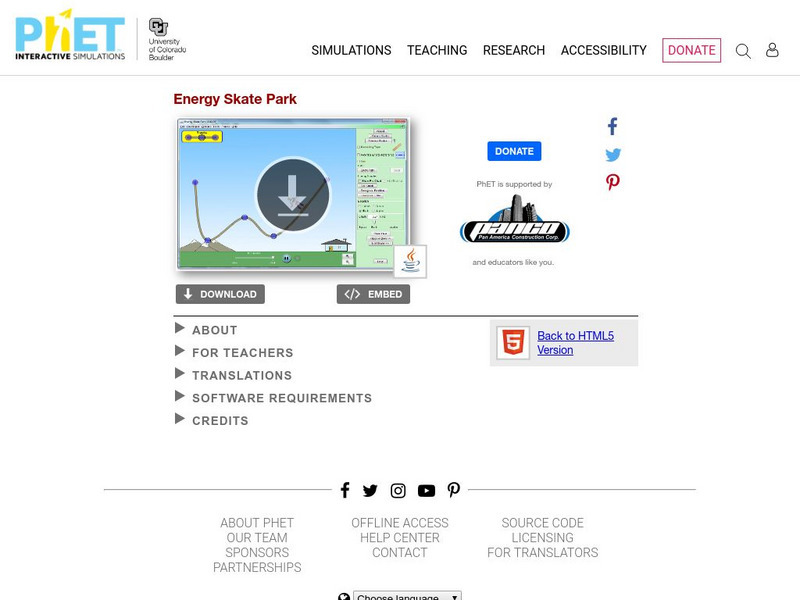



![The Engineering Place: Roller Coasters [Pdf] Lesson Plan The Engineering Place: Roller Coasters [Pdf] Lesson Plan](https://d15y2dacu3jp90.cloudfront.net/images/attachment_defaults/resource/large/FPO-knovation.png)

